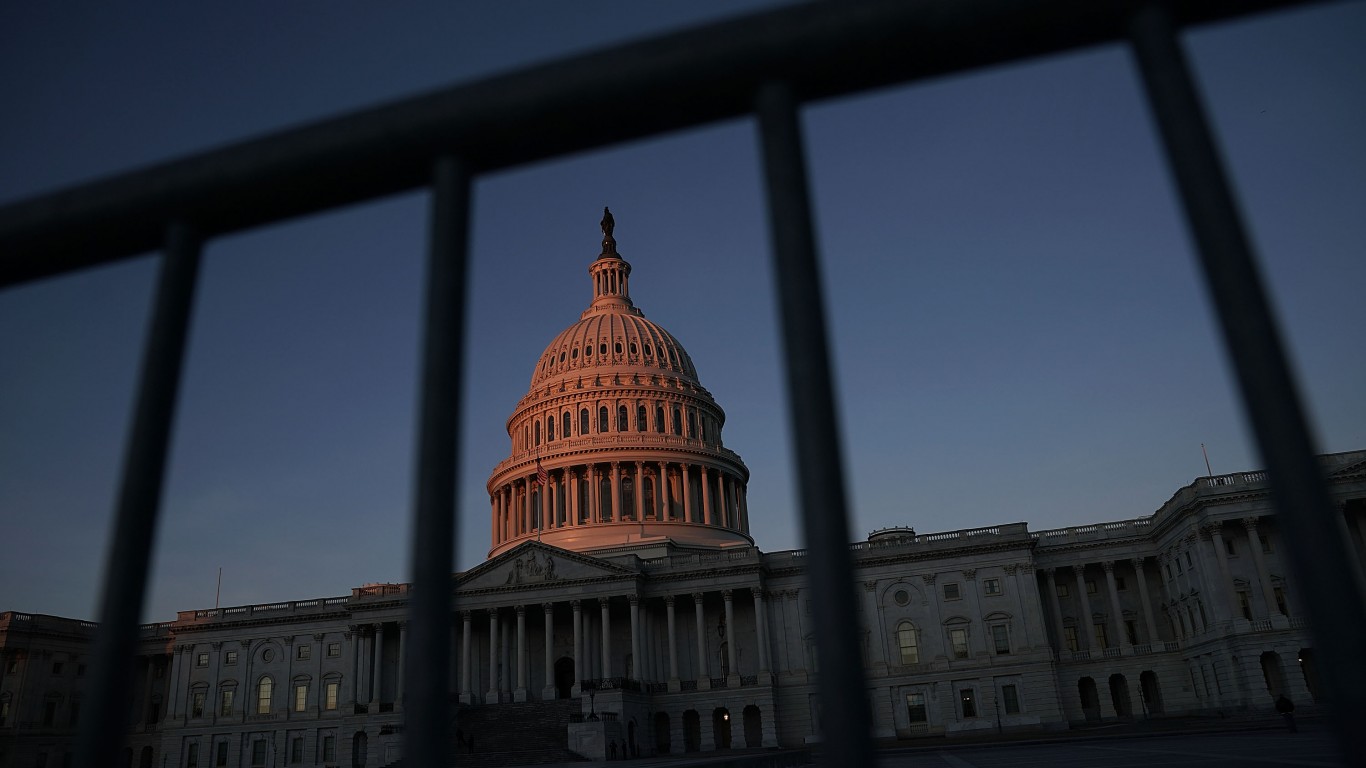
Americans’ satisfaction with the federal government may rely more on political party affiliation than on how the various government agencies actually perform. Since reaching a 20-year nadir in 2015, the overall rating of federal services rose to a 10-year high in 2017 before dropping back slightly last year.
The data were reported Tuesday on the American Customer Satisfaction Index (ACSI). Overall satisfaction with federal services posted a score of 68.9 (out of 100), down from 69.7 in 2017. Data in the survey were collected prior to the recently ended government shutdown. Those effects will not show up in the ACSI until the 2019 survey.
Two federal agencies, the Departments of Defense and Interior, tied for the top rating with index scores of 78. The lowest ranked agency was the Department of Housing and Urban Development (HUD) with an index score of 57. The ACSI rates only executive branch agencies and does not rate Congress or the Supreme Court.
The ACSI index is driven by four general attributes that define the performance of most government services and permit comparisons across departments and between government and the private sector. These are quality of information, customer service, timeliness and ease of processes, and usefulness of government websites. Compared with 2017, index scores for all four attributes fell by one or two points.
Federal agencies that performed best were the Pension Benefit Guaranty Corporation and the Bureau of Consular Affairs (BCA). The former provides pension benefits to retired employees of companies that have underfunded pension plans or that have had their debts discharged in bankruptcy. A recent example would be the $1.7 billion in underfunding of Sears pensions that the company’s prospective acquirer wants to shed. The BCA is the State Department division that issues passports and visas, among other things. Both received index scores of 89, higher than all 380 or so private sector companies measured by ACSI.
At the other end of the scale are HUD and the Departments of Veterans Affairs and the Treasury, both with scores of 63. ACSI noted, “If not for a handful of very dissatisfying subscription TV and internet service companies that score in the mid-to-low 50s, HUD would perform worse than all 380+ companies measured in the ACSI.”
Satisfaction with the Treasury Department’s Internal Revenue Service is predictably low. However, people who file their returns electronically give the IRS an index score of 76, much higher than business, international or individuals who file paper tax returns and rate the agency at around 60.
Now, about political positions. Self-identified Democrats rated overall satisfaction in 2018 at 69, down four points from both 2016 and 2017. Republicans rated 2018 satisfaction at 71, up two points from 2017 and up one point from 2016. Independents rated their satisfaction last year at 68, up three points from 2016 and a point from 2017. Members of other political parties were the least satisfied last year, giving the federal government a score of just 59, well below a 64 in 2016 and a 65 in 2017. ACSI noted:
All told, the declines in citizen satisfaction among Democrats and Other Party affiliates are larger than the gains among Republicans and Independents, even when adjusting for different numbers of respondents within these groups, and this results in the aggregate drop.
For the full report and methodology, visit the ACSI website.
Travel Cards Are Getting Too Good To Ignore (sponsored)
Credit card companies are pulling out all the stops, with the issuers are offering insane travel rewards and perks.
We’re talking huge sign-up bonuses, points on every purchase, and benefits like lounge access, travel credits, and free hotel nights. For travelers, these rewards can add up to thousands of dollars in flights, upgrades, and luxury experiences every year.
It’s like getting paid to travel — and it’s available to qualified borrowers who know where to look.
We’ve rounded up some of the best travel credit cards on the market. Click here to see the list. Don’t miss these offers — they won’t be this good forever.
Thank you for reading! Have some feedback for us?
Contact the 24/7 Wall St. editorial team.
 24/7 Wall St.
24/7 Wall St.

